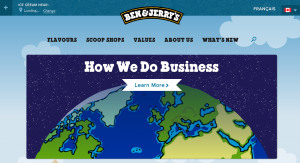http://thetyee.ca/Opinion/2014/07/26/Tsilhqotin-With-Gloves/
“Treat the earth well. It is borrowed from your children.” ~First Nations Proverb
In a globalized world of international business, companies and each of their members should make efforts to understand and respect the cultures over borders and oftentimes, they do. However, it can, on occasion, be easy to forget the interculturalism that exists within our borders, especially between Canada’s current citizens and its very first.

Tsilhqot’in protestors rally for their cause.
The recent legal victory of the Tsilhqot’in over control of their land and the prevention of logging, mining etc… is perhaps celebrated by all but the companies looking to conduct business in those lands and the government behind them. It would seem that in our modern day and age, the original vision of Canada has become lost. As a young nation, it’s true that our greatest exports are oftentimes the natural resources we find in plenty because the First Nations kept them sustainable. However, with the exploitation of these resources and the imposition on both First Nations land and values that dates back to the days our country was first settled, current sustainability becomes questionable. While the preservation of this land is a victory for the Aboriginals, it will certainly cause a decline in the productivity of the Canadian mining/logging companies.
It is certain that in Canada, awareness and respect for Aboriginal nations should be considered a factor in business. Although historically, Aboriginal demands have generally been overruled, their values align and indeed, parent the original vision of Canada. Though being unable to access their land may eventually spell for trouble for a variety of Canadian businesses, perhaps these values should be considered from the start and become guidelines, rather than walls.

Something we should all remember.


